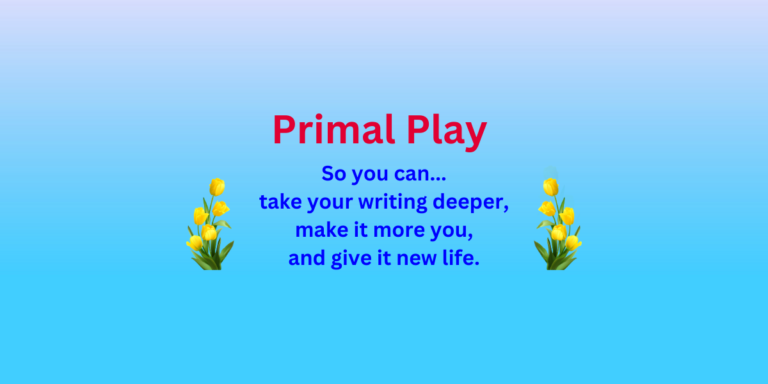2.6 Two deepening questions
I’ve watched lots of videos with titles like, “Where to get ideas for your writing.”
And lots of successful writers will tell you, when they go out on a book tour, the most common question asked is, “Where do you get your ideas.”
Interesting that…
An idea is consider the source of writing.
A left–brain thing.
In the hundreds of readings I’ve been to over the years, I’ve never heard anyone ask…
Where do you get your feelings?
Like, “What’s the right–brain source of your writing?”
Just as there are art teachers who focus on drawing from the right side of the brain, there are writing teachers who focus on writing from the right side of the brain.
Which is a bit of a corrective to the left–brain obsession.
But what about whole–brain writing?
Or better yet…
Whole-person writing.
Maybe people focus so much on ideas because they’re easier to manage than the tumult of thoughts and feelings that are part of a real life.
But there’s a richness in that tumult that can take writing deeper.
Here are two questions I like to ask when working with a writer on a fictional tale or a nonfiction essay, either one.
1. What’s the origin story of what you’re writing?
What its deepest source? Where in your past do you find that source? Is it an incident, a conflict with someone important to you, a dream, a hunch, a deep experience? Something else?
Is it from a few days ago? Is it from early in your childhood?
For example, in the opening section of my Asking book, I tell the childhood origin story of my life–long mission to upgrade love.
Some writers never become conscious of their deepest motivations.
Some become conscious later in life.
But if you can develop a really good working relationship with the source of your writing, then you can bring a deeper kind of personal power to your work.
And by the way, this doesn’t mean that you need to be explicit about the origin story in everything you write. Or even anything you write.
There are writers who are vividly aware of the deep personal source of their writing, but they never reveal it to their readers.
Still, that source, the power of that source, is present in everything they write and is a key reason why their readers adore them.
2. How will writing this piece change you?
How will it develop you? How will it take you forward in your life?
Writing my Asking book, asked a whole lot of me. I had to grow into it. Again and again. It was like an intense self–development program. Much more demanding than any guru’s ten easy steps for finding yourself.
I’m so thankful that it was demanding, because I’m a different person for writing that book. A much better person. More capable. With a depth of understanding about love that I didn’t have before.
Of course, not everything you write needs to come from a deep place or put you through life–altering changes. But when you do want to go deep, these two questions can come in handy.

